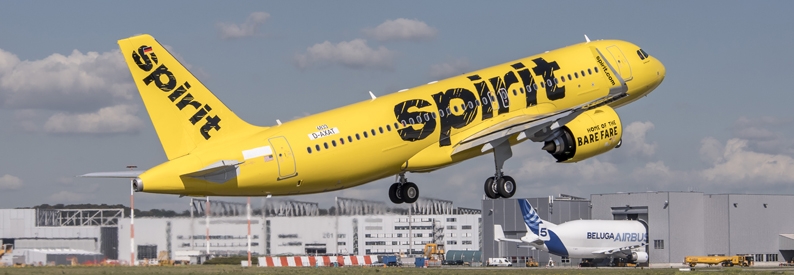Spirit AeroSystems Q1 Revenue Dips on Boeing Cuts

Spirit AeroSystems, a U.S. aerostructures manufacturer, reported a decline in revenue for the first quarter of 2025 compared to the prior year, driven largely by reduced production on Boeing programs, notably the 737. In its financial report released on May 1, Company stated that lower volumes from Boeing were partially offset by higher activity on Airbus programs during the quarter. Despite the downturn in revenue, Spirit’s total deliveries increased year-over-year, buoyed by a rebound in Boeing 737 shipments that had been delayed by joint product verification processes initiated in Q1 2024. Spirit’s backlog stood at approximately $48 billion at quarter end, underscoring demand for its aerostructures.
Spirit AeroSystems reported an improved operating loss in Q1 2025 compared to Q1 2024, attributing the gain to smaller adjustments in estimates and an $80 million gain from the sale of its Fiber Materials division. These positives were partially offset by a $116 million warranty reserve, which management said would be recoverable through contractual rights against suppliers. During three-month period, the company recorded net forward losses of $293 million tied to production schedule changes and escalating supply chain costs. Spirit has vowed to pursue recovery from suppliers to mitigate these headwinds.
Within net change in estimates, the Airbus A350 program accounted for a $90 million loss, primarily due to schedule shifts and production challenges. The Airbus A220 program faced an $86 million impact driven by rising component costs and supply disruptions, while the Boeing 787 program contributed a $38 million loss under similar circumstances. Collectively, these adjustments reflect ongoing volatility in widebody and narrowbody production lines as Spirit works closely with both OEMs to align build rates and control costs amid fluctuating demand.
Cash generated from operations fell in Q1 2025 relative to the same period a year earlier, largely because of timing of working capital movements, although higher Boeing 737 deliveries provided relief. Spirit’s free cash flow also declined, resulting in end-of-quarter cash balance of $220 million. Management highlighted that while short-term liquidity was pressured, the company’s strong backlog and ongoing asset sales would support financial flexibility throughout the year.
The report disclosed two major strategic transactions. On June 30, 2024, Spirit signed a merger agreement with Boeing under which Spirit will become a wholly owned Boeing subsidiary by Q3 2025. In addition, on April 28, 2025, Spirit agreed to transfer select production assets to Airbus in exchange for $200 million of credit aimed at bolstering support for Airbus’s A350 and A220 programs. These moves underscore Spirit’s commitment to aligning closely with its key OEM partners as it transitions into the next phase of its growth trajectory.
Despite revenue pressures, Spirit emphasized that demand for fuel-efficient composite aerostructures remains robust as carriers upgrade fleets to newer, low-cost-per-seat aircraft. Production lines for composite fuselage sections and wing components continue to benefit from long-term agreements with Airbus and Boeing, positioning the company for sustainable growth once OEM build rates recover.
Spirit expects the Boeing merger to create synergies in procurement, engineering and supply chain management, driving cost efficiencies and streamlined workflows. The Airbus asset-transfer will optimize the production footprint and resource allocation. Together with a robust backlog, these strategic moves aim to support a return to revenue growth as OEM build rates strengthen.
Related News : https://airguide.info/?s=Spirit+Airlines
